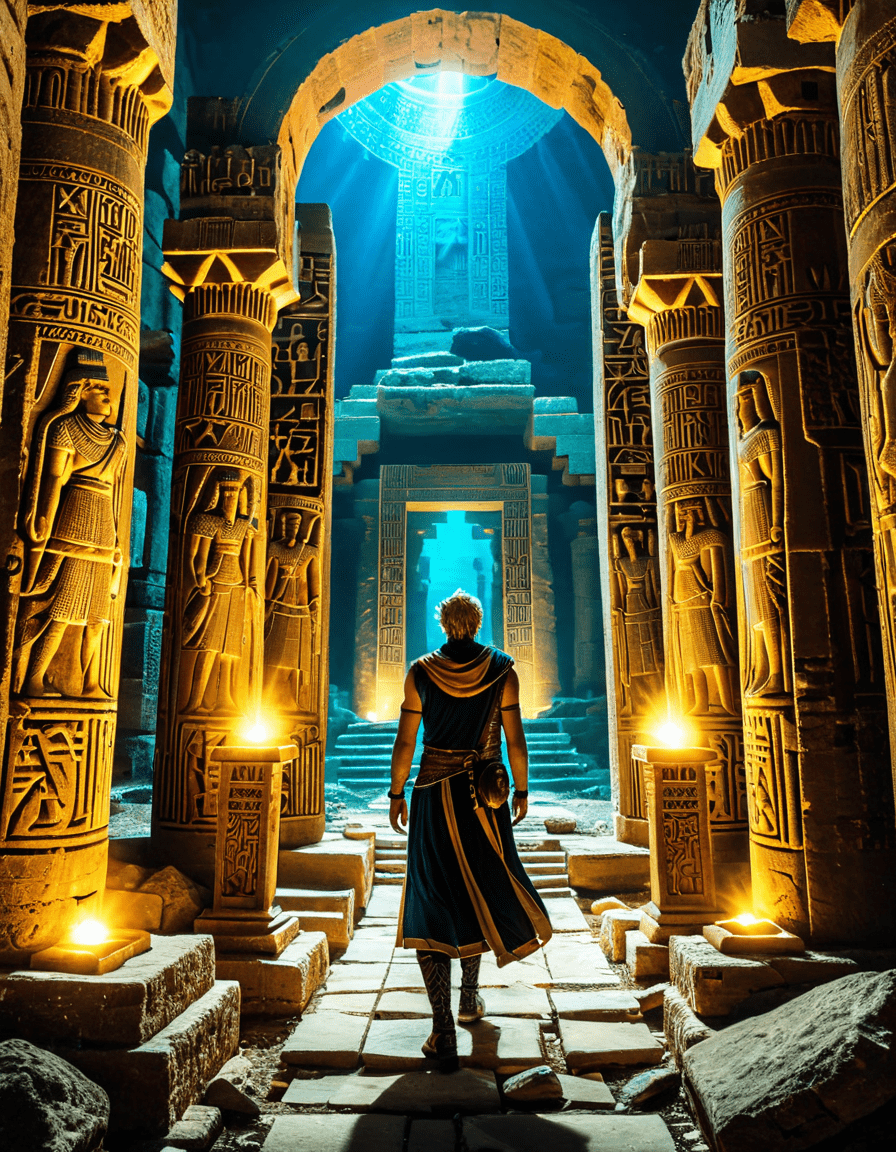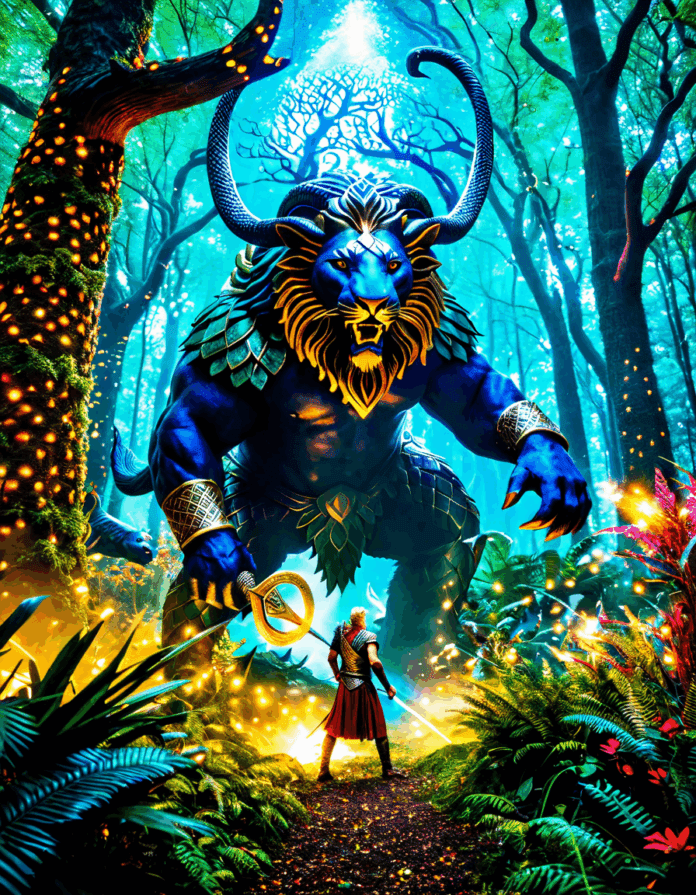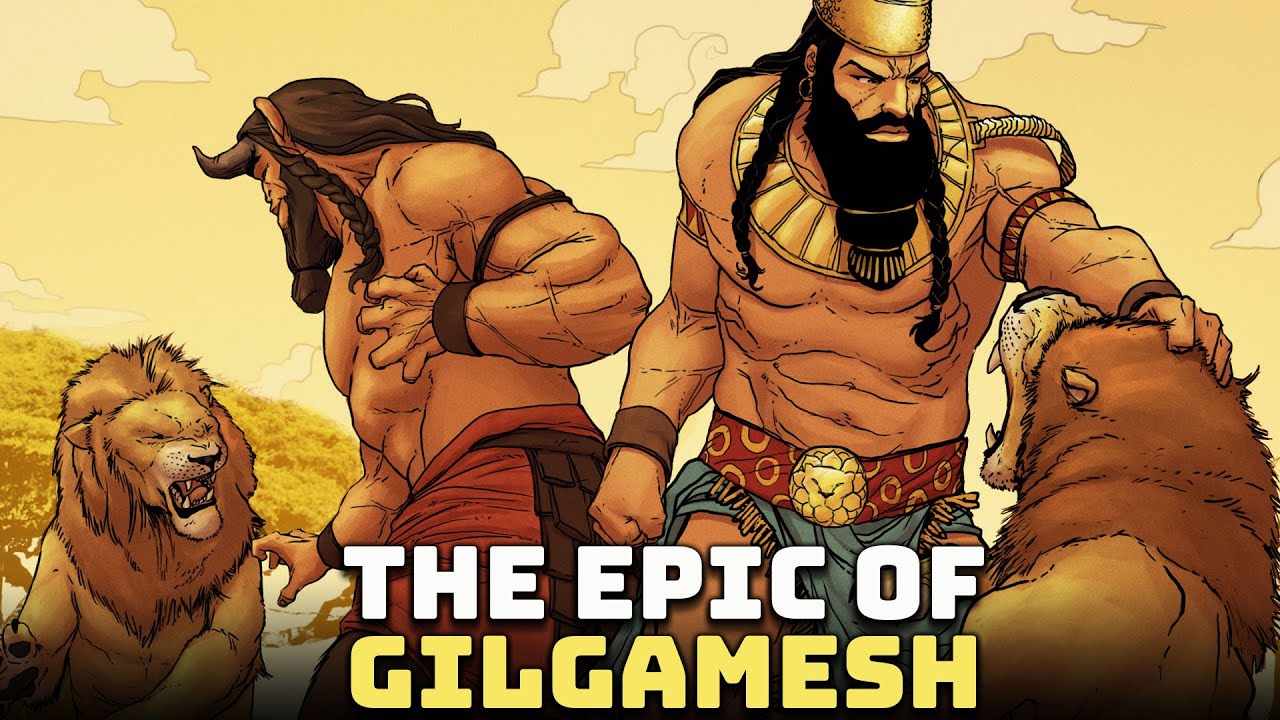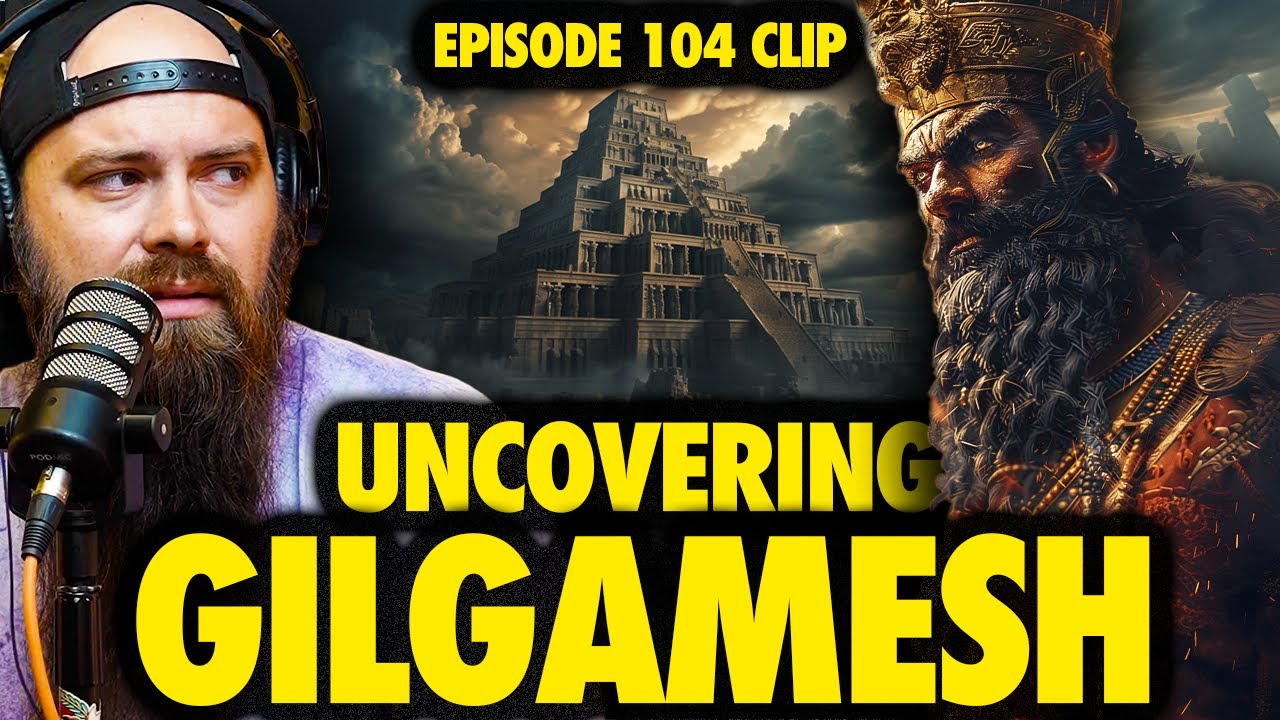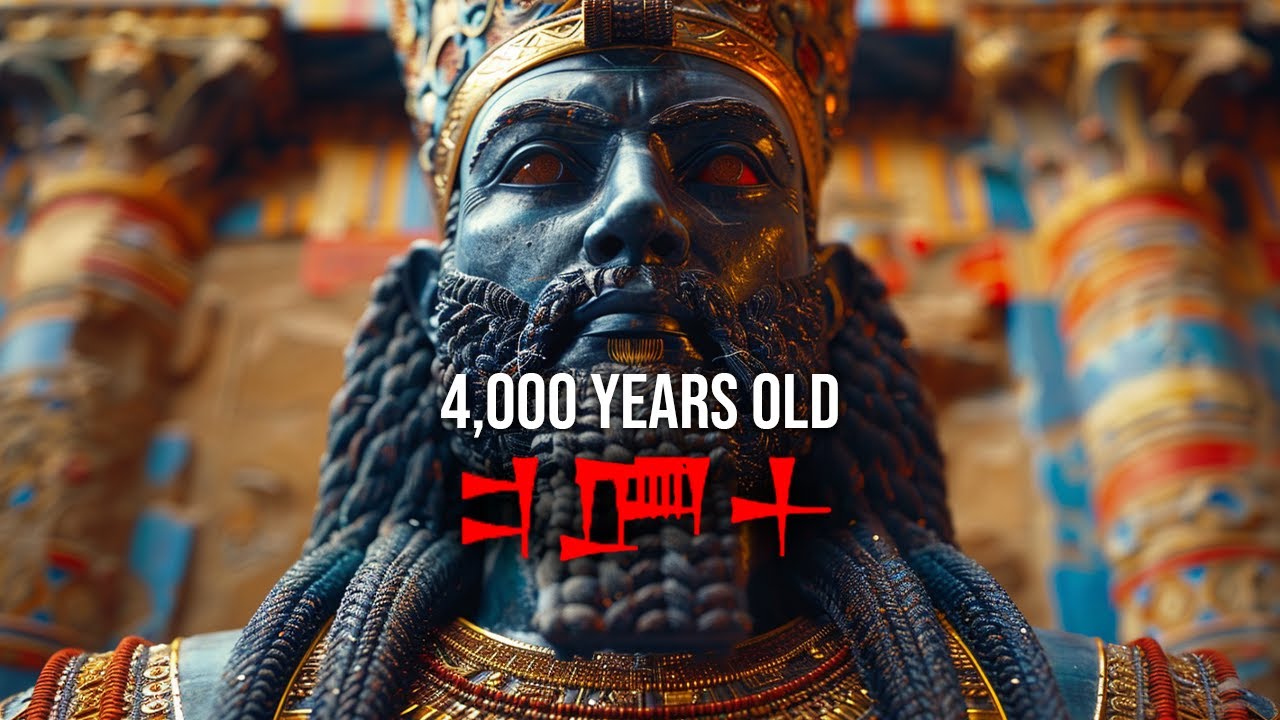The figure of Gilgamesh stands tall as an epic hero, towering over ancient Mesopotamian literature like a titan. If you’re a film buff or a literature lover, the stories of Gilgamesh are not just ancient history; they’re a timeless legacy filled with thrills, existential quests, and rich character arcs. Hailing from Uruk around 2700 BCE, Gilgamesh was a demigod king whose adventures weave through themes of friendship, mortality, and self-discovery. Much like a classic movie that makes you laugh and cry, the tale of Gilgamesh strikes a familiar chord that resonates even today. So grab your favorite snack, pull up a chair, and let’s explore the captivating lore of Gilgamesh.
The Historical Context of Gilgamesh
To understand Gilgamesh, we need to delve into the soil of ancient Mesopotamia. Picture this: a bustling city called Uruk, bustling with life and teeming with stories etched on clay tablets. Archaeological finds, including the ruins of Uruk’s ziggurat, support the idea that Gilgamesh was more than just a myth. He was real—a king whose strength and leadership set the standard for rulers to come, inspiring countless cultures and storytellers throughout history.
His reign wasn’t just marked by power but also by the incredible exploits that would eventually be immortalized in epic tales. These stories are essential to the human experience because they capture the very essence of what it means to be human—the struggle, the triumphs, and yes, even the failures. The legend of Gilgamesh reminds us that humanity has always grappled with profound issues, paving the way for future narratives both in literature and in cinema.
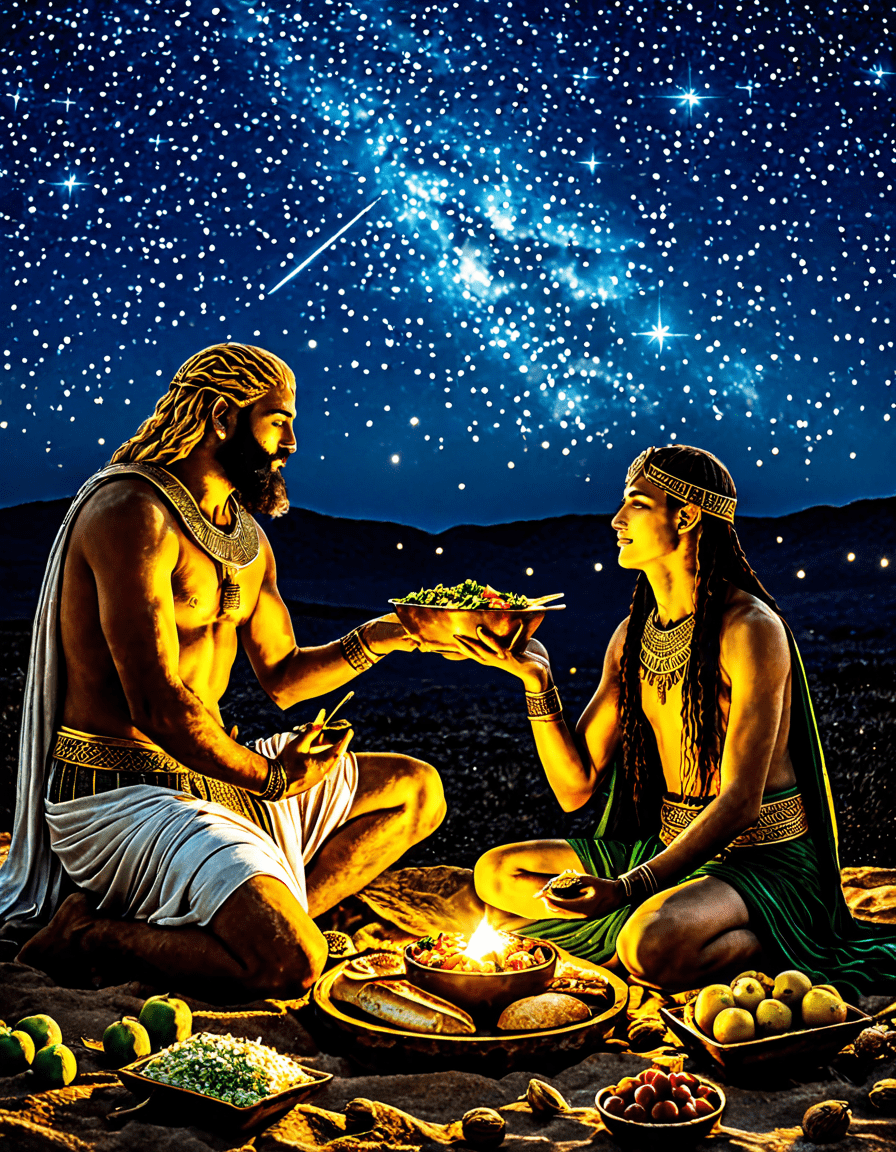
The Gilgamesh Epic: The First Great Literary Work
Moving on, the Epic of Gilgamesh is often hailed as the first monumental piece of literature—a real game changer for storytelling. Divided into twelve tablets, this epic chronicles the life of Gilgamesh, particularly focusing on his incredible journey with his beloved companion, Enkidu. Themes of friendship are ever-present, depicting the deep connection between the duo that inspires both joy and sorrow. When Enkidu meets his tragic fate, Gilgamesh’s ensuing quest for immortality hits home the truth that none of us can escape the clutches of death.
However, it’s not just a quest for eternal life; it’s a journey filled with lessons in humility, respect, and the acceptance of our mortal limitations. Some of the best films today, like “The Green Mile,” encapsulate similar themes, exploring the profound relationship between the human experience and mortality. Just like the emotional highs and lows we see in modern cinema, Gilgamesh offers a poignant reflection on life that continues to impact our narratives.
Top 5 Characteristics of Gilgamesh as an Epic Hero
So, what makes Gilgamesh stand out in the vast world of epic heroes? Here are five characteristics that define him:
By the end of his journey, the once arrogant king understands that true strength lies not only in physical prowess but in emotional resilience and leadership capabilities. This transition speaks volumes about the complexity of heroism.
The Influence of Gilgamesh on Modern Storytelling
The impact of Gilgamesh on modern storytelling is undeniable. His adventurous journey has served as a blueprint for countless narratives across various mediums. Think about it—some iconic characters like Gandalf share a similar structure with Gilgamesh, featuring elements of guidance, trials, and the ultimate acceptance of fate.
Moreover, the archetypal hero’s journey, illustrated beautifully through Gilgamesh, resonates in contemporary film and literature. From “Harry Potter” to “Star Wars,” Gilgamesh’s trials echo in the fabric of modern tales, providing frameworks that remind us of our shared human experience.
The Legacy of Gilgamesh in Contemporary Culture
Moving to cultural references, Gilgamesh has made a comeback in various forms. Graphic novels, animated adaptations, and even video games take a stab at retelling his epic adventures. One noteworthy example is the 2020 animated film “The Epic of Gilgamesh,” which seeks to breathe new life into this ancient tale for today’s audiences.
Also, games like GOD OF WAR tap into themes of heroism, loss, and the search for deeper truths, harking back to questions raised in Gilgamesh. Just as characters navigate their worlds in films like Killing The Irishman, the essence of Gilgamesh permeates through storytelling in ways that make us ponder our lives.
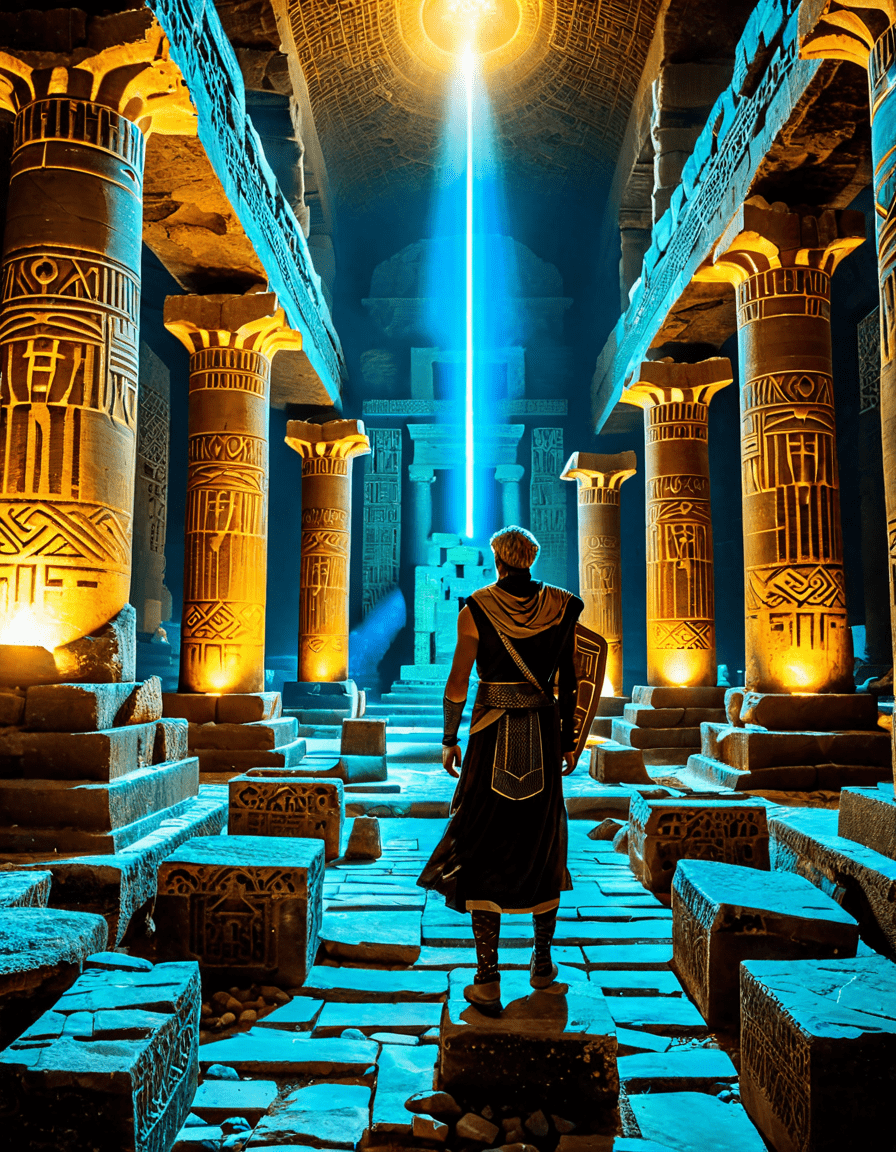
Final Thoughts on the Relevance of Gilgamesh Today
In conclusion, Gilgamesh serves not only as a dazzling figure of strength and myth but also as a mirror reflecting the profound queries of friendship, mortality, and the journey toward self-realization. His tale resonates with audiences today, much like Gandalf’s wisdom guides his companions through perilous journeys. As we navigate our modern lives, we find ourselves continually returning to the lessons Gilgamesh offers.
By bridging the gap between ancient lore and contemporary existential musings, Gilgamesh has woven itself into the very fabric of storytelling. The legacy of this legendary king continues to inspire reflection and provoke thought-provoking conversations in our society—even as we kick back and watch new adaptations. The story of Gilgamesh remains a subtle reminder of our shared humanity and the timeless nature of the human spirit.
So whether you’re tuning in to watch subservience or pondering the philosophical dilemmas like those in Stoic, remember that the heroic essence of Gilgamesh still endures. Next time you pop some popcorn for a movie night, you might just think of him while digging into epic tales that transport you through time!
Gilgamesh: The Legendary King and Epic Hero
The Historical Footprint of Gilgamesh
Did you know that Gilgamesh’s story is one of the oldest known literary works? Dating back to ancient Mesopotamia, its origins are around 2100 BCE! This epic has influenced countless stories throughout the ages, shining a light on the hero’s journey long before it became a popular narrative. While many modern-day heroes face their challenges in action-packed films, like in Ultraman Rising, Gilgamesh’s journey tackles the human condition itself—love, loss, and the quest for immortality. It’s fascinating to think that a tale crafted thousands of years ago could still resonate, much like how stories evolve today in cinema.
Adventures and Acquaintances
Gilgamesh wasn’t just any king; he was believed to be two-thirds divine and one-third human, making his feats extraordinary. His buddy, Enkidu, was sent by the gods to keep the king grounded, and their adventurous duo faced monsters and gods alike—similar to the dynamics seen in The Watcher pelicula. Their friendship plays a major role throughout the epic, and episodic tales of friendship endure in various forms, just like classic rivalries like the one between the Hornets Vs Timberwolves in today’s sports culture. Though they roamed ancient lands, their bond certainly transcends time.
The Pursuit of Immortality
One of the most riveting aspects of Gilgamesh’s story is his quest for eternal life. After losing Enkidu, he grapples with the pain of mortality, leading him on a journey that mirrors our own fears and aspirations. This theme is still prevalent today, with many individuals searching for ways to stay young or prolong life; think of trends like skinny Drops. In his quest, Gilgamesh visits Utnapishtim, the immortal flood survivor, tapping into an ancient myth that bears striking similarities to stories in various cultures, just like how certain tales are remade for modern audiences through the lens of figures like John Mccain.
Whether you’re delving into the epic or enjoying a modern film, the essence of Gilgamesh remains relevant, reminding us of our shared human experiences—struggles, friendships, and the quest for meaning. And who knows? Perhaps crafting leather with “TandyLeather” could be your own symbolic way of leaving a lasting legacy!
